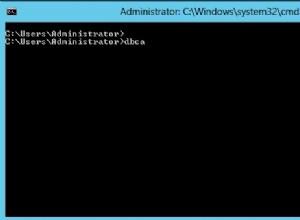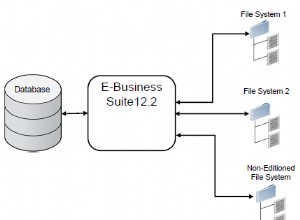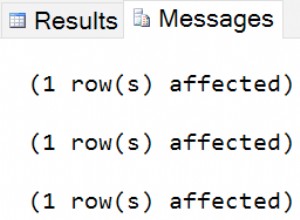La mia pugnalata. Ho cercato di mantenerlo il più semplice possibile, pur mantenendo alcune comodità del mondo reale.
Gestisce unicode e utilizza un confronto libero per la leggibilità. Sii gentile;-)
<?php
header('Content-type: text/html; charset=utf-8');
error_reporting(E_ALL | E_STRICT);
ini_set('display_errors', 1);
// display_errors can be changed to 0 in production mode to
// suppress PHP's error messages
/*
Can be used for testing
$_POST['id'] = 1;
$_POST['name'] = 'Markus';
*/
$config = array(
'host' => '127.0.0.1',
'user' => 'my_user',
'pass' => 'my_pass',
'db' => 'my_database'
);
# Connect and disable mysql error output
$connection = @mysql_connect($config['host'],
$config['user'], $config['pass']);
if (!$connection) {
trigger_error('Unable to connect to database: '
. mysql_error(), E_USER_ERROR);
}
if (!mysql_select_db($config['db'])) {
trigger_error('Unable to select db: ' . mysql_error(),
E_USER_ERROR);
}
if (!mysql_set_charset('utf8')) {
trigger_error('Unable to set charset for db connection: '
. mysql_error(), E_USER_ERROR);
}
$result = mysql_query(
'UPDATE tablename SET name = "'
. mysql_real_escape_string($_POST['name'])
. '" WHERE id = "'
. mysql_real_escape_string($_POST['id']) . '"'
);
if ($result) {
echo htmlentities($_POST['name'], ENT_COMPAT, 'utf-8')
. ' updated.';
} else {
trigger_error('Unable to update db: '
. mysql_error(), E_USER_ERROR);
}




